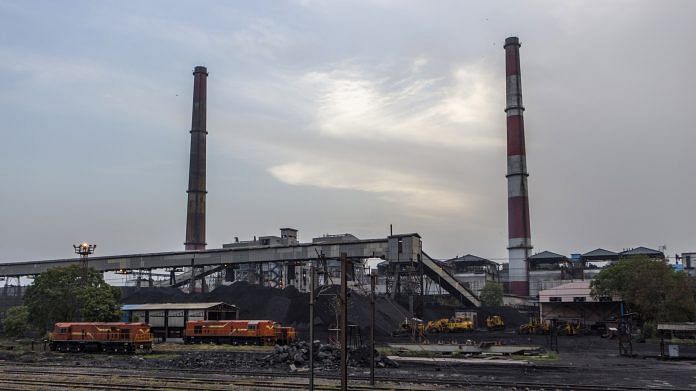
New Delhi: India’s plans to expand its coal fleet by 65 megawatts (MW) by 2030 could lead to a 60 per cent rise in the number of annual premature deaths due to air pollution in five major cities, a new study has found.
The coal fleet expansion could result in 52,700 premature deaths, 31,300 preterm births, 46,800 asthma emergency hospital visits in the cities of Mumbai, Bengaluru, Chennai, Kolkata, and Delhi in the next decade, the study said.
The study was conducted by C40 Cities, a network of 97 city administrators who aim to “help the world limit global heating to 1.5°C,” along with researchers from The Centre for Research on Energy and Clean Air, Vivid Economics, and the University of Maryland’s Center for Global Sustainability (CGS).
Globally, 264,900 people could die prematurely between 2020 and 2030 if current plans to expand coal fleets are not changed, it added.
The researchers said cities are “at the centre of the transition from coal to clean energy,” since they account for approximately two-thirds of global energy use.
“Decarbonising electricity used by cities will lead to huge reductions in urban GHG emissions and air pollution, while also creating good green jobs and providing increasingly cheaper and more secure energy,” the study said.
Economic health costs associated with coal pollution
The study was modelled around two scenarios, one where greenhouse gas emissions are reduced in line with the Paris Agreement, which aims to limit the rise of global temperatures to 1.5 degrees above pre-industrial levels. The second is if countries go ahead with their current coal plans, which takes into account coal plants in the pipeline and those scheduled to retire by 2050.
The study analysed 61 cities across 27 countries. India, along with South Africa, Australia, Thailand, Vietnam, Turkey and Indonesia, is home to the most polluting coal plants. In India, 55 per cent of the country’s coal is generated within a 500-kilometer radius of the five cities mentioned above.
Among all the cities in the world, Kolkata stands to lose the most number of people prematurely to air pollution, at over 3,000 projected deaths between 2020-2030.
“Over the coming decade, the economic health costs associated with coal pollution is estimated at 46.5 billion USD, more than twice as much as India’s total public health expenditure in 2018,” said the research.
Replacing 46.5GW of uncompetitive coal plants with renewable energy could result in 1,60,000 new jobs.
To contribute to limiting global temperatures to a 1.5 degree rise, India’s coal use must peak “at the latest this year, and reduce by 20% between 2021 and 2030, with the entire fleet of Indian coal plants being retired by the year 2045 to reduce emissions in line with a 1.5 degree C climate scenario,” the study said.
This would be over and above India’s current climate commitments, which have pledged to reduce emissions by 33 to 35 per cent below 2005 levels.
“By continuing to support coal-fired power plants, national and state governments are threatening the health and well-being of all those living in major Indian cities while undermining India’s air quality targets. India’s current national coal policies fall dramatically short given that current plans would expand the coal fleet by 28% between 2020 and 2030 not reduce it by 20%, which global 1.5 oC-compliant climate targets require. Current coal plans could increase the number of annual premature deaths from coal-related air pollution in major Indian cities by 60%,” Dr Rachel Huxley, Head of knowledge and research at C40, said in a statement.
Also read: India can save almost Rs 9,000 cr a year by shutting old thermal power plants, study says

COMMENTS